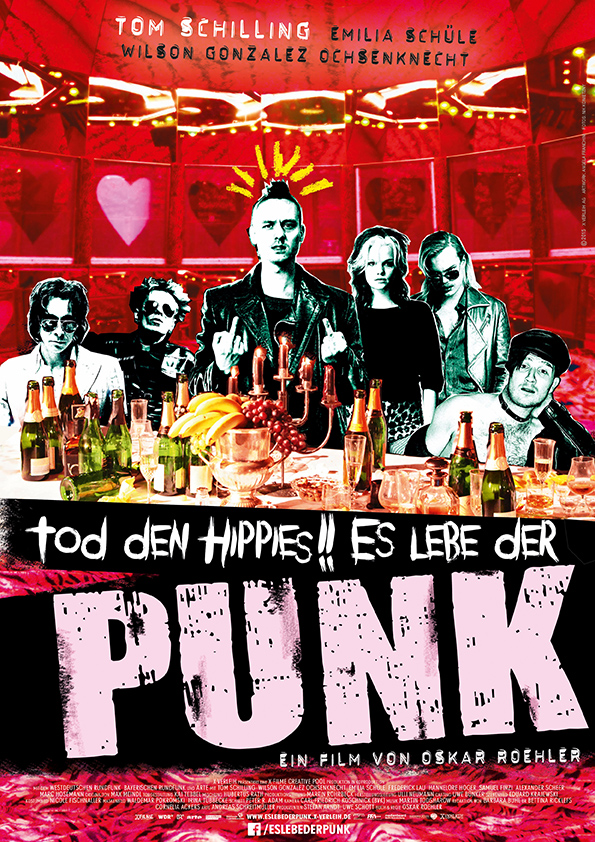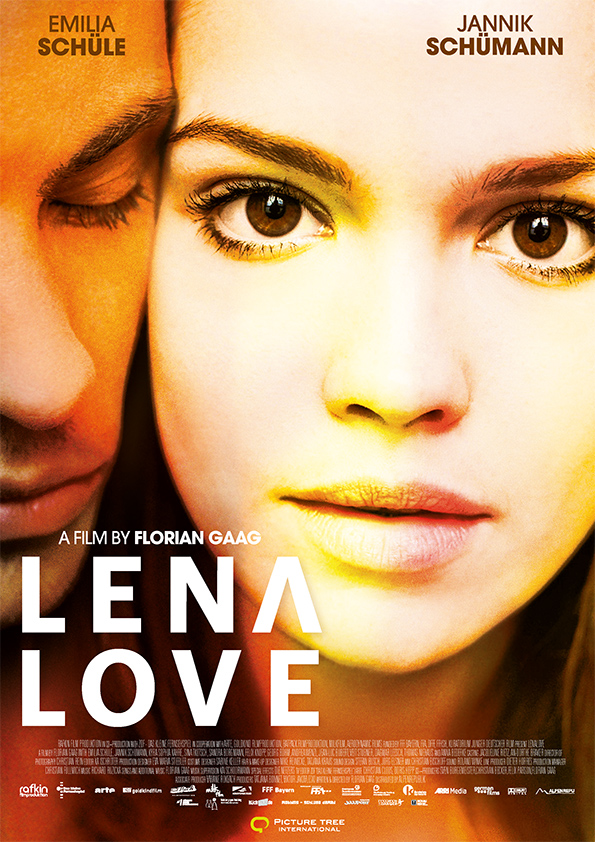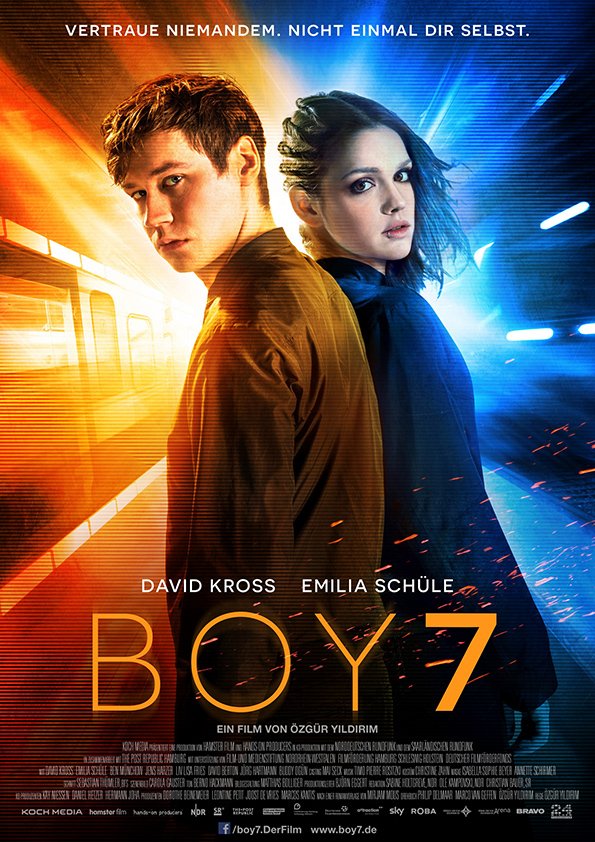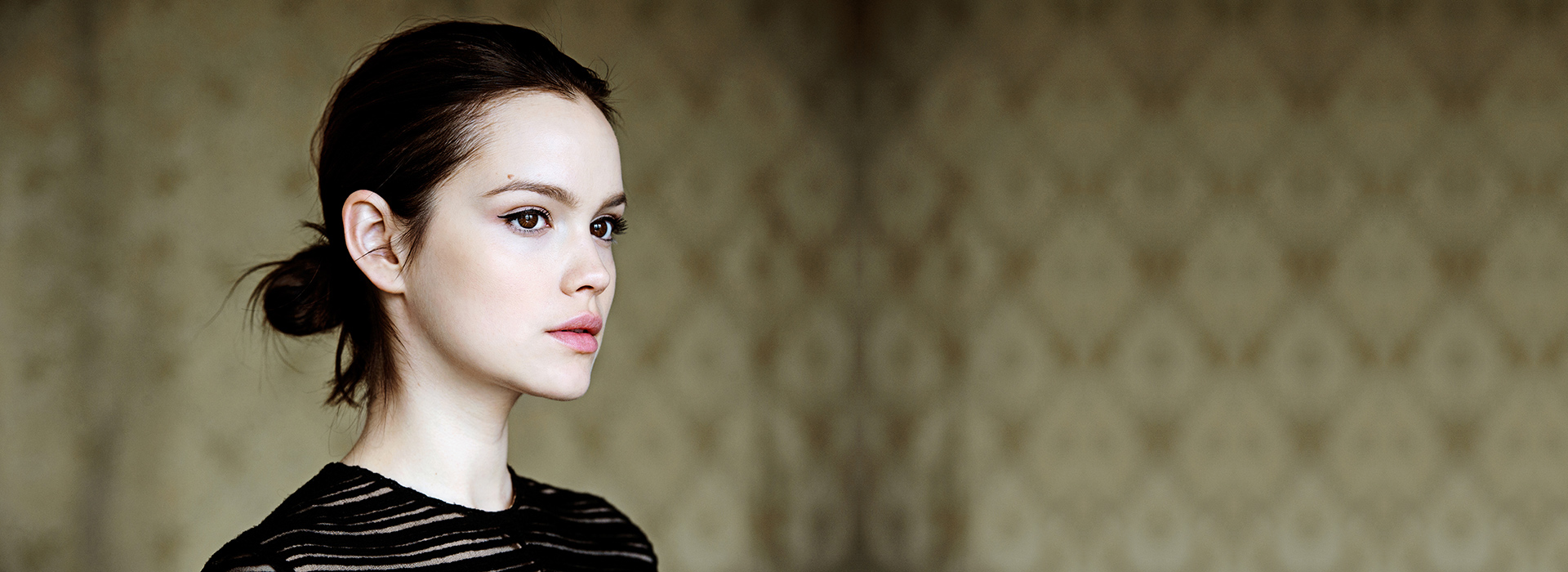A PORTRAIT OF ACTRESS EMILIA SCHÜLE
photo © Jeanne DegraaEmilia Schüle has chosen the setting well. On this fine spring morning we meet in the Potemkin, a café on the idyllic square Viktoria-Luise-Platz in Berlin, homage to Sergei Eisenstein’s film classic BATTLESHIP POTEMKIN from 1925. The 24-year-old actress picked the café, although not as a cineastic reference. She likes the Russian food here, which she knows from her own family. They moved from Russia to Germany when she was a baby.
Even though she has no conscious memories of Russia, she does believe that she feels an affinity to the language and culture. Since then, she has never returned to the town where she was born, Blagoveshchensk near the Chinese border. That is all going to change this June, however. “I am going to be travelling with the Trans Siberian Railway, six days starting from Moscow!,” she explains, beaming all over her face. “It’s a dream come true, it has been on my bucket list for a long time.”


For several years now, Schüle has had very little free time. She is a veteran of the film and television business already, at the age of only 24. When she was six she had her first stage experience with a dance group, and “soon noticed how much I enjoyed it, and also learned to blank out the audience.” And so as a young girl she had no problem with castings or staying relaxed in front of other people on set. After a commercial spot in 2006, she was given her first role in Lars Kraume’s TV drama GOOD MORNING, MR. GROTHE about a teacher at a secondary school in Berlin – she had just turned 13. Then one thing led to another: with the successful film comedy CHEEKY GIRLS (2007), the teenage drama GANGS (2008), and a film version of the fairy-tale CINDERELLA (2010), she was given an early opportunity to participate in some very different projects.
And yet, as she now reveals, it was rather by chance that she became an actress. Actually, at the time she was only accompanying her sister to an agent’s office – and was then taken on by the agent herself as well. She refers to the first shoots in those days as “great adventures”, which she enjoyed in a playful way. “It was not until I was 17 or 18 that I reflected on things more and approached them more seriously,” she says. “I began to choose my roles more consciously, to leave things less to chance.” Above all, she felt she had missed out on arthouse films because she had often appeared in teenie comedies.
“Then I began to search more purposefully, but it was difficult for a long time, although at castings I often made it to the last two.” Until right in the middle of her school graduation exams, when she was offered a role in the double TATORT episode WEGWERFMÄDCHEN/DAS GOLDENE BAND about forced prostitution. “And so at last I was able to show what I can do and what I had always wanted.” She was highly praised for her achievement, drawing the attention of many directors and receiving a Golden Camera and the German Acting Award as Best Young Actress.

Emilia Schüle herself was surprised by the force of the response, and looking back she calls it a “perfect start signal, helping me to see acting as a real profession”. The time before this was her biggest challenge, and since then she has been less tense, able to extend her range.
Oskar Roehler cast her as a junkie in his semi-autobiographical satire TOD DEN HIPPIES!! ES LEBE DER PUNK, she played a teenage delinquent in the thriller BOY 7, and a victim of cyber-bullying in LENALOVE. The genre or era in which a story is set is not so important to her. “It is always about the same fundamental issues for the characters – about love or trauma. The circumstances and backgrounds change, and the costumes and the language, of course, but they are driven by very similar things.”
Emilia Schüle has no classical training; the many shoots since childhood have schooled her. Since last year she has been working together with a coach to prepare her roles, and “this framework gives me a sense of security,” she says. And, of course, the fact that she is currently one of the most sought-after shooting stars in Germany.
Most recently, Emilia Schüle could be seen in two of the most important event-TV productions: in the acclaimed three-part drama set in the fifties, KU’DAMM 56, and in Sönke Wortmann’s historical hospital series CHARITÉ. 2017 may well prove her most significant year to date. As many as five films for the cinema will be screened for the first time in the coming months, including Alain Gsponer’s adaptation of YOUTH WITHOUT GOD, Marcus Goller’s drama of friendship, MY BROTHER SIMPLE with Frederick Lau and David Kross, the directing debut ES WAR EINMAL IN INDIANERLAND by Student Oscar®-winner Ilker Çatak, and another comedy with a top-class cast, HIGH SOCIETY. The Berlin-based actress is especially proud of Stefan Kromer’s two-person, intimate drama, PROFESSOR WALL GEHT INS BORDELL, with which she hopes to fulfill a long-cherished dream: “I would so love to present a film at a major festival.”
Besides working for cinema and TV, she volunteers for the organization “Plan International Germany”, which offers help to girls in need. So does she have any time for a private life? She laughs. “Sure. I’m definitely not a couch potato. And I share a flat with two good friends, there’s always something going on.” And in June, of course, she is travelling to deepest Russia with the Trans Siberian Railway. There’s very little chance of Emilia Schüle getting bored.
Thomas Abeltshauser

